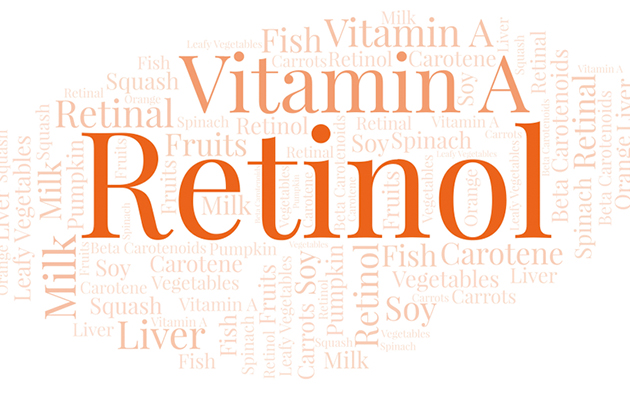
Retinol is a magic ingredient which has the ability to treat any skin condition, ranging from wrinkles and fine lines to acne. Also, it is widely known for improving the skin’s elasticity, triggering collagen production, and resolving uneven texture.
While retinol is one of the best remedies for pimples, the first few weeks of applying any product which contains retinol can be an irritating and challenging experience. This scenario falls under the domain of the purge phase or adjustment period. During this period, acne often gets worse, resulting in whiteheads to severe outbreaks.
Retinol works by increasing the rate at which your body produces new skin cells by speeding up the process of skin cell turnover. When you use retinol products, new skin cells travel from inner layers of skin to the surface at a faster rate, giving your skin a younger and fresher appearance.
Applying retinol is a long-term treatment which promotes fresh skin, fewer blemishes and reduction in acne breakouts. Whereas in the short term, it can lead to acne breakouts, skin peeling, dryness, and a range of other frustrating temporary outcomes.
The purge phase usually lasts for two to six weeks. But, it can vary depending on the skin. It can range from minor pimples to cystic acne, as well as dryness, redness, and peeling. Also, it is important to remember that retinol isn’t the direct cause of acne. Acne breakouts which occur during the purge phase would have developed on their own and retinol only speeds up their appearance.
Dealing with the purge phase or adjustment period can be a stressful event. Fortunately, there are a few measures you can follow to make your experience more manageable:
Acceptance: Your body will take time to adjust to retinol. Instead of stressing over acne breakouts, accept it and keep your mind focused on how retinol can reduce acne and improve your skin in the long run.
Stay hydrated: The first few weeks of using retinol can involve irritated and dry skin. Staying hydrated is useful for both your skin and general well-being.
Use moisturizer: Your skin turns flaky and dry during the first few weeks of using retinol. Apply moisturizer to reduce dryness and hydrate your skin.
Avoid sunlight: Retinol can make your skin more sensitive to UV radiation, resulting in sunburn. Therefore, avoid direct exposure to sunlight.
Patience is the key to a glowing skin. Furthermore, you can always go for over-the-counter medications such as AcneStar gel or AcneStar soap for early and effective treatment.
Disclaimer This blog solely intended for the educational/informational/awareness purposes and is not a substitute for any professional medical advice, diagnosis or treatment. Please consult your doctor/healthcare professional before acting on the information provided on the blog. Reliance on any or all information provided in the blog, is solely at your own risk and responsibility. Mankind Pharma Limited shall not be held liable, in any circumstance whatsoever.

Acne is a skin condition that occurs when your hair follicles become plugged with oil and dead skin cells.

it is absolutely imperative to know its type. Acne can be inflammatory or non-inflammatory which further has different lesions, as mentioned below.

Acne starts occurring in teenagers due to an increase in the level of Androgen production. Androgen is a hormone which signals the body to produce more sebum, the oil produced by the sebaceous glands.

Acne is a skin condition that occurs when your hair follicles become plugged with oil and dead skin cells. It often causes whiteheads, blackheads or pimples, and usually appears on the face, forehead, chest, upper back and shoulders. Acne is most common among teenagers, though it affects people of all ages.

Debunk acne myths by following a proper skincare regimen. Taking good care of your skin can help you achieve a glowing and acne-free skin.